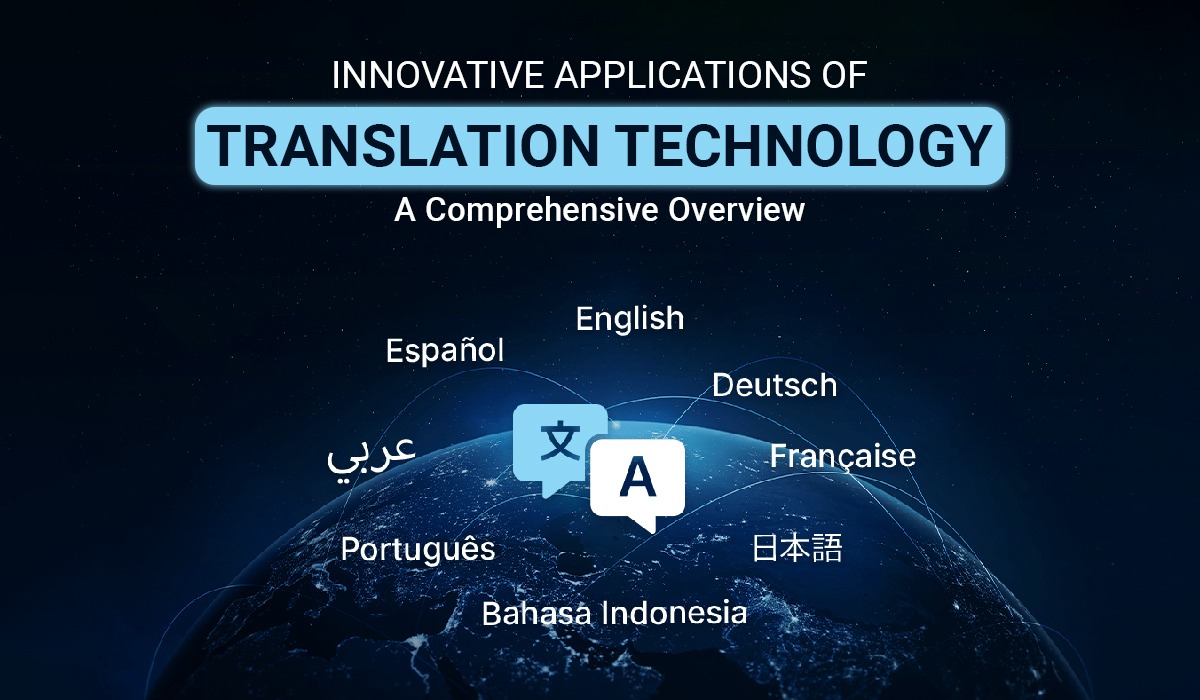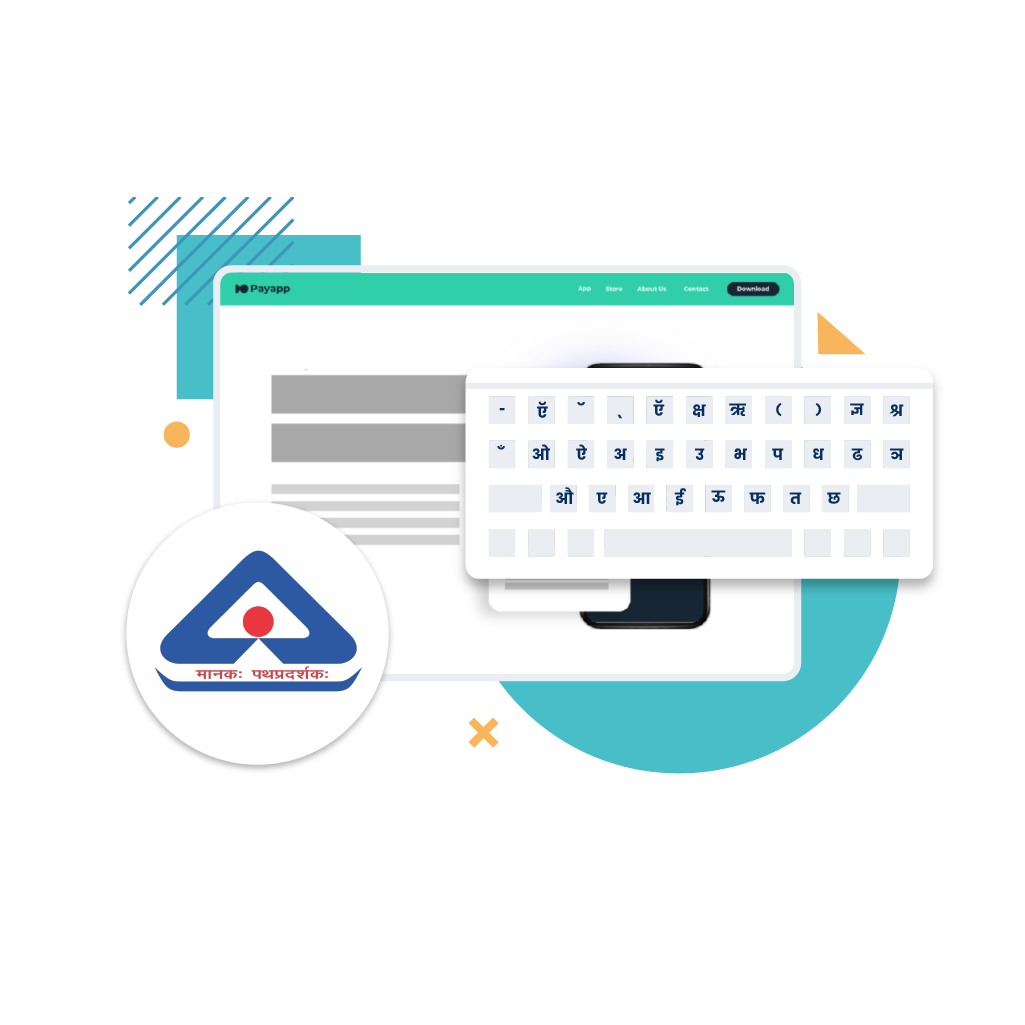Tech-enabled applications of translation, encompass various types of translation technologies and enable cost-efficient and scalable multilingual content creation. This reduces the need for manual translation efforts while maintaining consistency and quality.
For instance, machine translation systems are transforming industries by automating the translation of complex documents in sectors like healthcare and finance, while CAT tools are enhancing the productivity of human translators in industries such as automotive and manufacturing. Real-time translation is redefining customer service in sectors like travel and hospitality, and TMS platforms are streamlining global content management in technology and software companies.
But how exactly can these tools transform your business operations? In this comprehensive overview, we explore the innovative applications of translation technology that are reshaping how companies operate on a global scale.
What is Translation Technology?
Translation technology refers to a sophisticated tech stack designed to automate, assist, or manage the process of translating content from one language to another. For businesses operating in a global marketplace, this technology is essential for breaking down language barriers and ensuring consistent, high-quality communication across multiple regions.
Scaling into New Markets: Impactful Applications of Translation Technology
Companies can fuel their growth by using translation technology to reach new audiences. These technologies serve as a powerful enabler for global growth, allowing companies to communicate effectively, localise their content, and build stronger connections.
Here are some innovative real-world business applications of translation technology that demonstrate how companies are leveraging it to drive business expansion:
1. Localising Global Content
Businesses use translation technology to localise their content and make it relevant to audiences in different regions. Whether it’s websites, product descriptions, or marketing materials, content localisation helps companies resonate with local customers.
- E-Commerce Localisation: Online retailers rely on translation technology to translate product descriptions, customer reviews, and checkout processes. By localising their entire e-commerce platforms, businesses can offer a seamless shopping experience to international customers.
- Multilingual Marketing Campaigns: Global brands use translation tools to adapt their marketing content for different regions. From ad copy to social media posts, businesses ensure their messages are culturally relevant and engaging in every market they enter.
2. Providing Multilingual Customer Support
Effective customer support is essential for maintaining strong relationships with international customers. Translation technology enables businesses to offer real-time support in multiple languages, ensuring customers feel heard and valued.
- Automated Customer Service: Companies implement AI-driven translation tools to power multilingual chatbots, providing instant responses to customer queries in their preferred language. This reduces response times and improves overall customer satisfaction.
- Support Ticket Translation: Businesses also use translation management systems to automatically translate support tickets and responses. This allows customer service teams to handle queries from around the world without needing language-specific expertise.
3. Translating Legal and Compliance Documents
When expanding into new markets, businesses often need to navigate local legal and regulatory requirements. Translation technology simplifies this process by quickly and accurately translating legal documents, contracts, and compliance materials.
- Contract Translation: Law firms and multinational companies use translation tools to translate contracts and agreements, ensuring they meet the legal standards of different countries.
- Compliance Documentation: Businesses translate regulatory documents and safety manuals to stay compliant with local laws. By using translation technology, companies can streamline this process and reduce costs.
4. Training and Communicating with a Global Workforce
As businesses grow globally, they need to ensure their employees receive consistent training and communication, regardless of location. Translation technology helps companies create multilingual training materials and internal communications that are accessible to all employees.
- Employee Training Programs: Companies use translation tools to develop training materials in multiple languages, ensuring that employees around the world receive the same high-quality training.
- Internal Communication: Businesses rely on real-time translation tools to communicate with their global workforce, making sure that important announcements and updates reach everyone, regardless of language.
5. Facilitating Real-Time Collaboration
Global collaboration is becoming the norm for many businesses, and translation technology plays a critical role in enabling effective communication across languages. Companies use real-time translation tools to break down language barriers during meetings, conferences, and team collaborations.
- Video Conferencing Translation: Businesses leverage real-time translation technology to enable smooth communication during international video calls and conferences. This allows participants to engage fully, regardless of their language.
Cross-Border Team Collaboration: Translation tools integrated into project management platforms help global teams collaborate on projects, ensuring that language differences don’t slow progress.
6. Localising Digital Platforms
In addition to websites, businesses increasingly focus on localising their entire digital platforms, such as mobile apps and software interfaces. Translation technology helps companies adapt these platforms for different languages and regions, ensuring a smooth user experience globally.
- Software Localisation: Software companies use translation tools to localise their interfaces, help documentation, and notifications. This makes their products accessible to users in different regions and languages.
- Mobile App Localisation: App developers rely on translation technology to adapt their apps for international markets, ensuring the interface and content are user-friendly for global audiences.
AI-Powered Translation: The Cutting-Edge of Translation Technology Applications
Artificial intelligence has redefined how businesses approach translation and localisation. These systems combine automation, machine learning, and natural language processing to streamline the entire translation process.
Following are some of the strategic benefits of AI-powered translation technology applications:
- Speed and Accuracy- AI-driven machine translation has evolved significantly, particularly with the advent of Neural Machine Translation (NMT).
- NMT leverages deep learning algorithms to deliver translations that not only preserve linguistic accuracy but also consider the context and cultural nuances of the target language.
- By integrating AI-powered MT with human post-editing, businesses can achieve a balance between speed and accuracy, allowing them to enter new markets faster.
- Streamlined Localisation- TMS enhanced by AI provides an all-in-one solution for managing complex multilingual projects.
- AI-powered TMS continuously learn from input data, improving their performance over time and ensuring that translations are accurate and contextually relevant.
- By automating the workflow, AI-enhanced TMS platforms reduce the time and effort required to manage large-scale localisation projects. This results in faster turnaround times, reduced costs, and improved consistency across multiple languages
- Elevated Customer Experiences- With AI-powered real-time translation, businesses are experiencing a significant transformation in customer interactions.
- It enables businesses to provide seamless, on-the-spot translations during live interactions, whether through chat, phone, or video calls.
- By leveraging AI for real-time translation, businesses are providing support in their customers’ preferred languages, which is essential for building trust and loyalty.
- Customisation for Industry-Specific Translations- One of the impactful benefits of AI in translation technology is its ability to customise translations for specific industries and use cases.
- AI-powered platforms can be tailored to handle the unique terminology and content requirements of sectors such as legal, medical, and technical fields.
- For businesses operating in highly specialised fields, customisation is paramount for maintaining credibility and ensuring that translated content meets regulatory and industry standards.
Reverie’s Translation API: Elevating Applications of Translation Technology in Multilingual Markets
Businesses expanding into multilingual markets need solutions that go beyond basic translation. It demands a robust, scalable platform capable of handling diverse languages with accuracy and cultural sensitivity. Reverie’s Translation API offers just that, enabling businesses to seamlessly connect with audiences across India’s rich linguistic landscape.
- Reverie’s Translation API empowers businesses to communicate effectively in 22 official Indian languages. This API integrates advanced linguistic capabilities with the applications of translation technology, ensuring the content resonates with diverse audiences across regions.
- One of the key differentiators of Reverie’s Translation API is its ability to handle the cultural nuances of India’s diverse languages. Businesses leveraging this API can ensure that their translations are accurate and culturally appropriate. This avoids misinterpretations that could negatively impact brand perception in sensitive markets.
Connect with millions across India’s diverse linguistic landscape with the power of Reverie’s Translation API. Book your free demo today and unlock seamless multilingual communication!
FAQs
What is the use of translation technology in business?
Translation technology enables businesses to efficiently manage multilingual content, ensuring accurate communication across global markets. It automates translation processes, reduces costs, and allows companies to scale their operations by localising websites, marketing materials, and customer support
What are translation applications, and how do they benefit businesses?
Translation applications are software tools or APIs that automate the translation process, allowing businesses to convert text or speech from one language to another. These applications benefit businesses by streamlining localisation efforts, improving translation accuracy, and enabling faster go-to-market strategies in multilingual regions.
What industries benefit the most from the applications of translation technology?
Industries like e-commerce, healthcare, legal, education, and customer service benefit significantly from translation technology. These technologies help these industries maintain accuracy while scaling globally, enabling them to serve diverse markets with ease.
How does AI enhance the applications of translation technology?
AI enhances translation technology by improving accuracy, speed, and context awareness through advanced algorithms like Neural Machine Translation (NMT). AI-powered tools continuously learn from data, refining translations to capture the nuances of language, making them more relevant and culturally sensitive.


